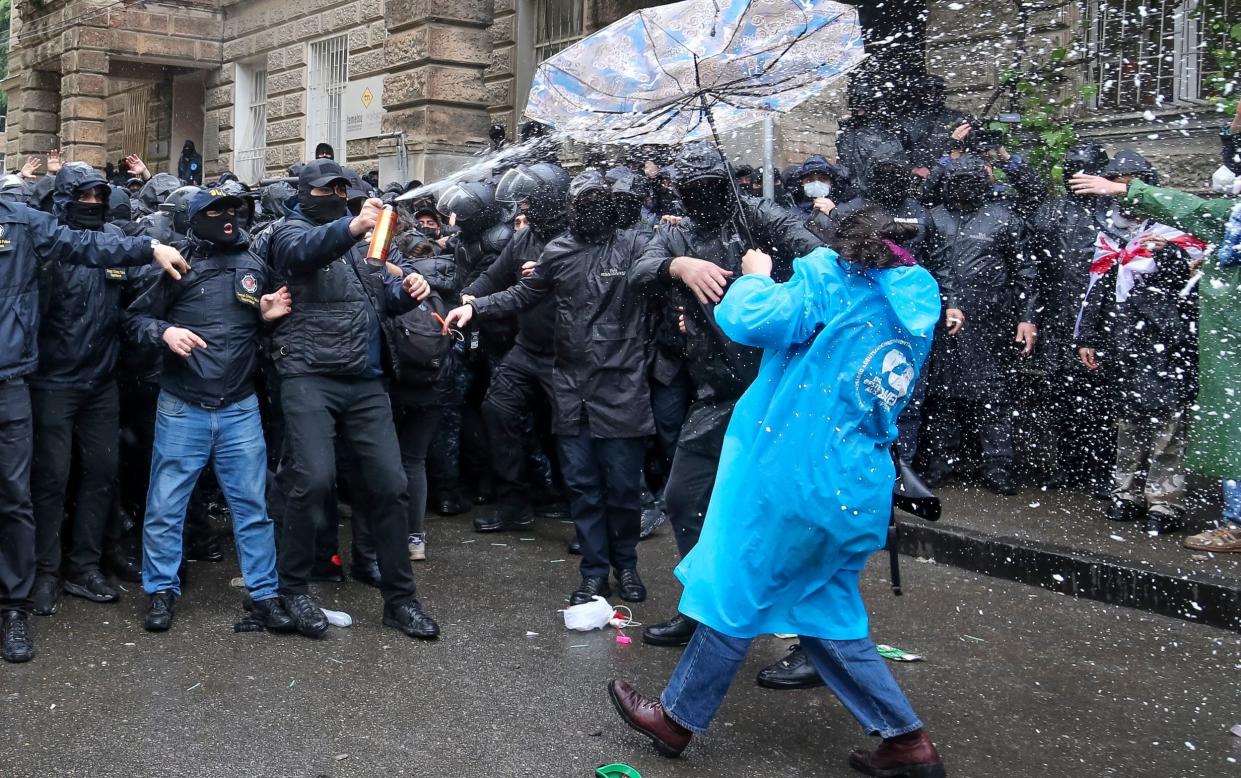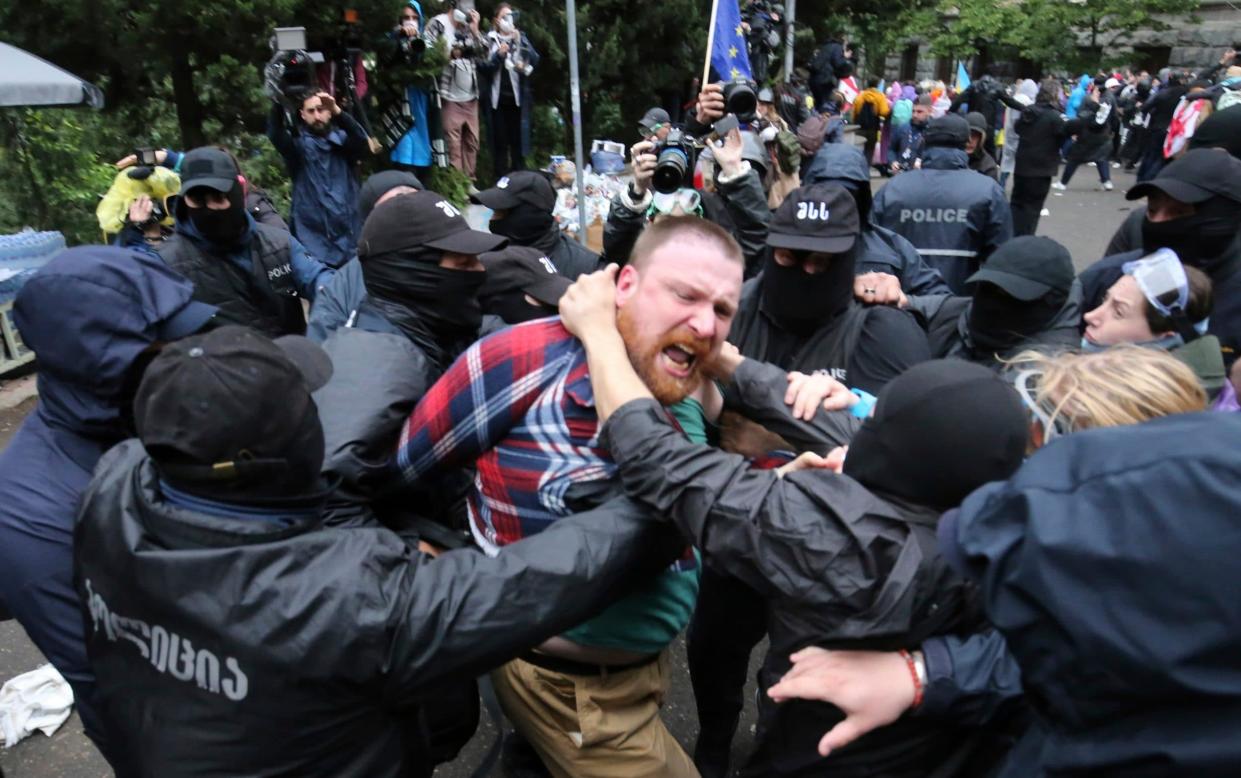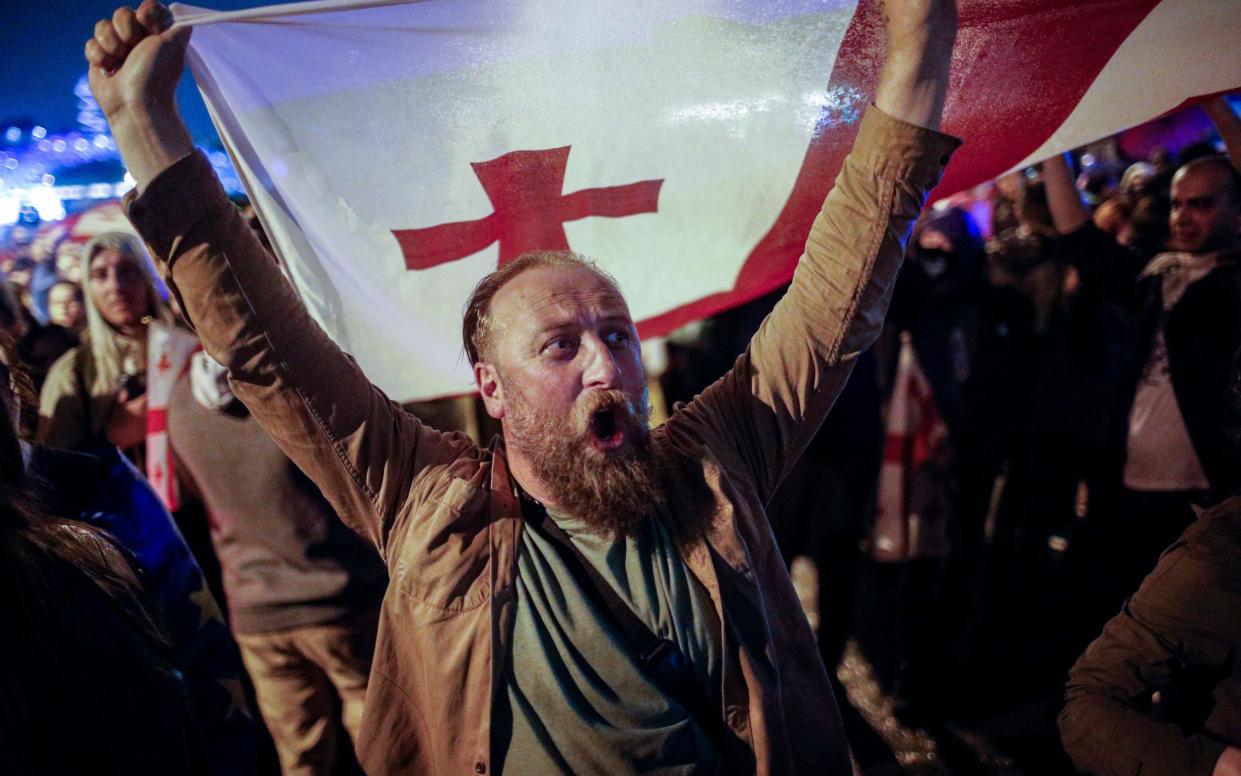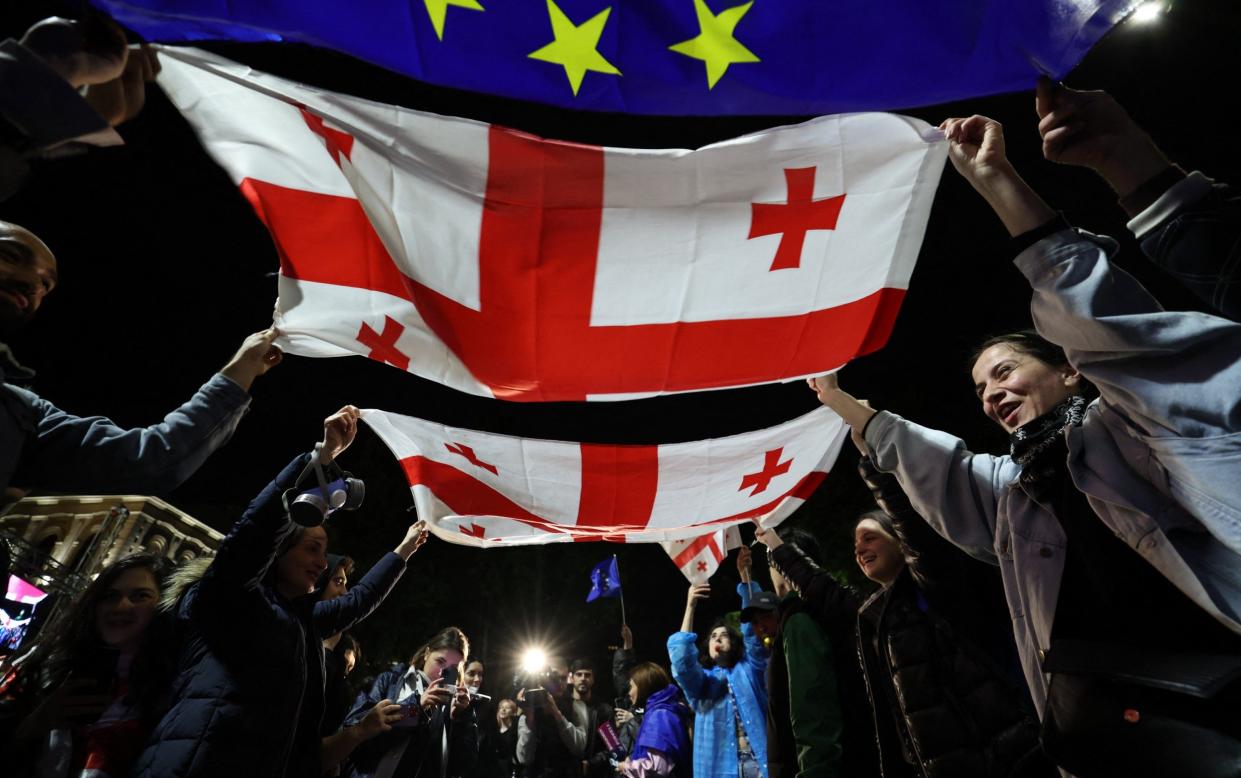Georgian police clash with protesters over ‘foreign agents’ law
Georgian riot police are currently locked in a tense stand-off with protesters, demonstrating against a controversial “foreign agents” law, outside the parliament in Tbilisi.
Masked officers, armed with tear gas and backed with water cannons, clashed with protesters who were trying to stop a vote on the bill – with there even being reports of demonstrators being beaten by police.
Critics call the bill the “Russian law” and fear it is modelled on a law made by Vladimir Putin to crack down on media freedoms. This, in turn, sparks concern that it will damage Georgia’s hopes of joining the EU.
EU officials told the Telegraph that the bloc had urged Georgia’s political leaders “not to proceed with this law” and warned it put future EU membership at risk.
“It is clear that this legislation is incompatible with the EU norms and values,” a spokesman said, “If adopted, it would jeopardise Georgia’s progress on the EU path.”

Georgia was nominated as a candidate country to join the EU last December, fulfilling a long-running aspiration.
The European Commission strongly condemned “brutal actions” by the Georgian authorities against peaceful protestors. Brussels also warned that EU member states had raised their concerns “very, very clearly and loudly” over the foreign interference law and were watching the situation in Georgia “very, very closely.”
Joining the EU is a lengthy process that is expected to take many years. It will require the unanimous support of the member states, as well as many reforms.
It said the bloc was “not there yet” in considering sanctions, which would be a last resort. The EU’s foreign affairs spokesman said: “What we are seeing in Georgia is really impressive commitment and desire by the vast majority of the Georgian population for the EU future of their country.
“And we would really expect the Georgian government, the Georgian authorities in power to mirror this desire and this attachment of their people to democracy.”

The latest clash comes after tens of thousands of demonstrators ringed the parliament of the ex-Soviet republic overnight, with approximately 1,000 still outside on Monday morning.
In earlier protests, marchers waved EU-flags amid concerns the law is pushing Georgia back towards Moscow and away from the West, with scenes reminiscent of Ukraine’s Maidan protests.
The ruling Georgian Dream party – which was forced to drop a similar bill last year, after a huge backlash – is intent on passing the bill on Tuesday, arguing it is all about transparency. The law requires NGOs and media receiving more than 20 percent of their funding from abroad to register as an “organisation pursuing the interests of a foreign power”.
Demonstrators chanted “slaves” and “Russians” at arriving Georgian Dream MPs on Monday, as offices with shields stopped them from blocking the entrance to the parliament. At dawn, the AFP news agency saw police detain and beat a group of protesters – while hundreds of riot police lined a small street behind parliament, with some scuffling with demonstrators. Authorities had warned they would arrest people who blocked parliament, but thousands defied the warning and came to the building’s gates regardless.

The protests in Georgia have been led by students from Tbilisi’s universities, who declared a strike Monday.
“We are planning to stay here for as long as it takes,” 22-year-old Mariam Kalandadze told AFP.
“This law means not joining Europe,” she said, adding that “this is something that I have wanted my whole life.”
The clashes come as the European Commission said it would demand answers after EU flags were banned from the Eurovision Song Contest. The contest, which is organised by the European Broadcasting Union (EBU), only allows the flags of participating countries and the Pride flag. Prior to Saturday night, the alliance had always turned a blind eye to EU flags which have been ubiquitous at other Eurovision contests.

There has been speculation that Georgia, one of the participating countries and a member of the EBU, may have insisted on the ban being enforced because of the protests. However, this has been neither confirmed nor denied by the EBU, according to reports from Politico.
Margaritis Schinas, the EU Commissioner for protecting the European way of life, told the US-based publication, “Clearly timing is something that was relevant … with people protesting in the streets, with Europe being subject to so many hybrid threats.”
Less than a month from the European elections, who wins from banning the EU flag from Eurovision? Only the Euroskeptics and the enemies of Europe,” he added.
